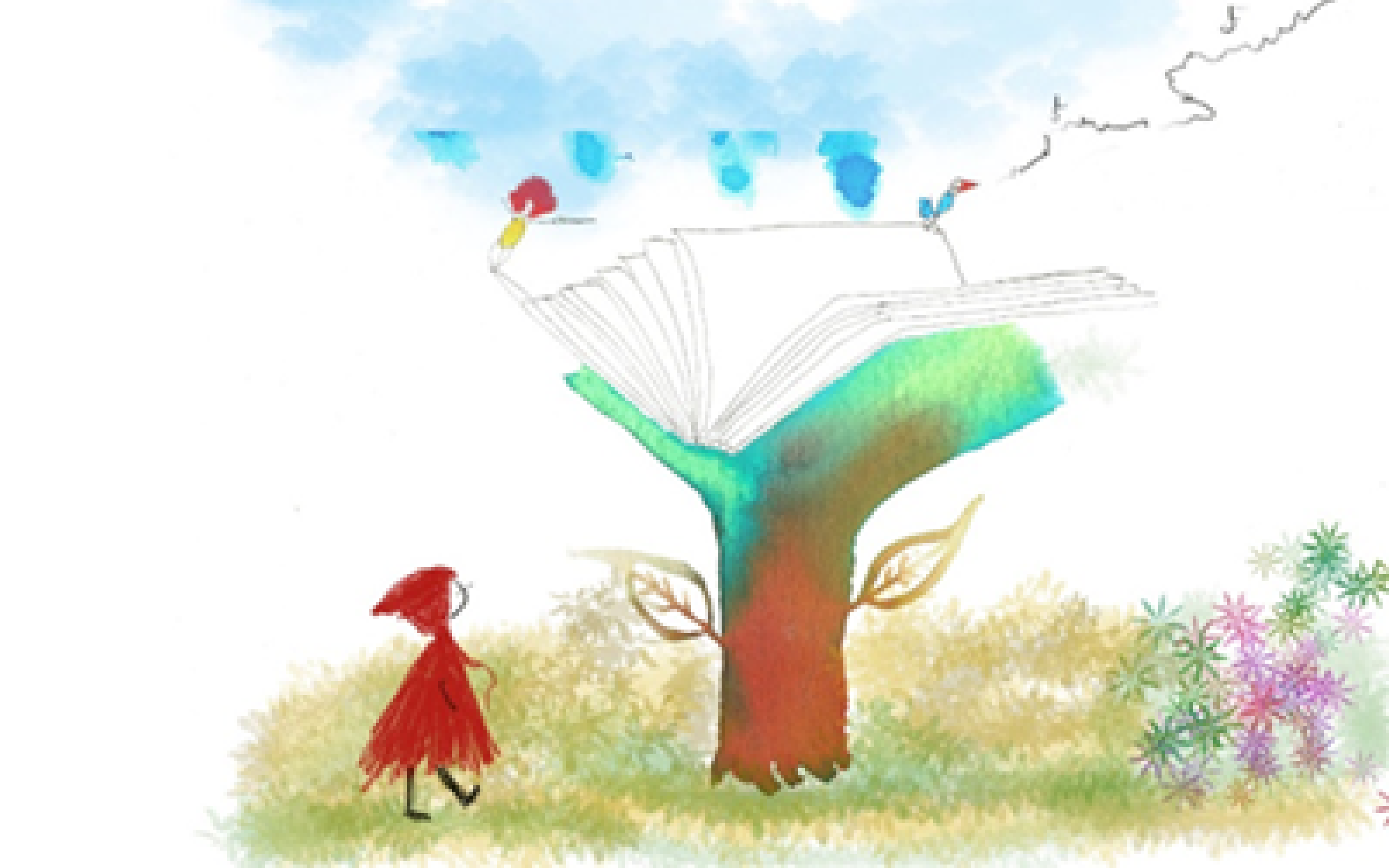Abstract
The central place recognized today to the arts in the education of citizens constitutes a challenge for initial and ongoing training in Universities of Education, that are called to contribute to the development of a new profile of education professionals more aware of the role of the arts, and particularly of drama and theater, in children and young people’s education.
This study investigates the impact of Drama/Theatre training on the training of 1st year students of Basic Education Degree (LEB), at High School of Education, Polytechnic University of Porto. It combines quantitative and qualitative methods, theoretical research and observation of practices, the students being co-investigators, bringing their experience of participating in Drama/Theatre classes. The basis of the study are the students' diaries, the questionnaires administered to LEB students and the texts they produced about their motivations and expectations as future teachers or educators.
The conclusions of the study identify specific Drama and Theater strategies (active participation, quality presence and individual and collective creation) that contribute to students' personal development and recognition of the relevance of this area in the development of a professional identity more aligned with a new school as a rehearsal for reality.
References
Antunes, C.P. (2018). A Educação Dramática na formação inicial de professores, Revista eletrónica Pesquiseduca, 9(18), (pp. 424–438). https://periodicos.unisantos.br/pesquiseduca/article/view/719
Assembleia da República (1986). "Lei n.º 46/1986 de 14 de Outubro". Diário da República: I série, 237: 3067-3081.
https://files.dre.pt/1s/1986/10/23700/30673081.pdf
Boal, A., (2005). Teatro do oprimido e outras poéticas políticas. Rio de Janeiro. Civilização Brasileira.
Bunting, M., Mikkelsen, S & Cammack, P (2021). Socio-cultural learning, students as co-researchers, a key for students` success in Gravesen, D.T.; Stuart, K.; Bunting, M.; Mikkelsen, S.H.&Frostholm, P.H. (Eds); Combating marginalisation by co-creating education. (pp.15-29), Emerald Publishing Ltd.
Comissão Executiva do Plano Nacional das Artes (2019). Plano Nacional das Artes. https://www.dge.mec.pt/sites/default/files/Projetos/PNA/Legislacao/pnartes_dr_21fev2019.pdf
Csikszentmihalyi, M. (2018). Flow, Hermes.
Dewey, J., (1980). Art as experience, Perigree Trade.
DICE Consorcium (2010). Making a world of diference, A DICE resource for practitioners on educational theatre and drama. “The DICE has been cast. Research findings and recommendations on Educational Theatre and Drama” (vol 1) and “Making a world of difference. A DICE resource for practitioners on educational theatre and drama” (vol. 2. Belgrade et al.: European Commission, in: SCENARIO 2/2011 | Almut Küppers - Academia.edu; Drama Improves Lisbon Key Competences in Education - (dramanetwork.eu)
Direção-Geral da Educação (2021). Aprendizagens essenciais. https://www.dge.mec.pt/aprendizagens-essenciais
Equipa de Educação Artística (2014). Programa de Educação Estética e Artística. Direção-Geral da Educação. https://files.diariodarepublica.pt/2s/2014/02/033000000/0480804809.pdf
Falcão, M., Leite, T.&Pereira, T., (Coord.) (2021). Educação artística 2010-2020, ESE, IPL, CIED. ebook_EA_FINALISSIMO_compressed_doi_0.pdf (ipl.pt)
Ferreira, M.S. & Santos, M.R., (2007). Aprender a ensinar, ensinar a aprender. Edições Afrontamento.
Frankl, V.E., (2019). Man`s serch for ultimate meaning. Hermes.
Guilherme d’Oliveira Martins (coord.) (2021). Perfil dos Alunos à Saída da Escolaridade Obrigatória (PASEO). Ministério da Educação/Direção-Geral da Educação. https://dge.mec.pt/sites/default/files/Curriculo/Projeto_Autonomia_e_Flexibilidade/perfil_dos_alunos.pdf
Hardalova, P. (2021). Drama as a journey into yourself: the reflections of a teacher. In Clough N. &Tarr J. (Eds), Addressing issues of mental health in schools through music and the arts: teachers and music therapists working together, (p.255-257) Routledge Publishers.
Heathcote, D.&Bolton G. (1995). Drama for learning. Dorothy Heathcote`s mantle of the expert approach to education. Publisher: Heineman Drama.
Kipper, D., (2000). Psychotherapy through clinical role playing, BRUNNER/MAZEL Publishers, NY.
Kolk, B. (2018). The body keep the score. Brain, mind and body in the healing of trauma, East-West, BG.
Leite, T., (2021). A educação artística no currículo do ensino básico in Falcão, M., Leite, T.&Pereira, T., (Coord.) Educação artística 2010-2020, (pp.79-84) ESE, IPL, CIED. ebook_EA_FINALISSIMO_compressed_doi_0.pdf (ipl.pt)
Macedo, E. & Hardalova, P. (2021), The wider arts as experiences that support young people and teachers working together. In Nick Clough & Jane Tarr (Eds.), Addressing issues of mental health in schools through the arts: Teachers and music therapists working together. London: Routledge Publishers ( p. 258-263)
Macedo, E., Santos, S., Torres, F.&Hardalova P., (2017), Reinventig alegory of the cave through drama, Teachers’ challenges and competences in the education of vulnerable young aduts in Portugal. in Macedo, E., Clough, N.&Santos, S.A. (Eds). Engaging vulnerable young people in education through the arts. (pp.75-93) Educação Sociedade e Culturas, CIIE, FPCEUP, 4/17236184.pdf (up.pt)
Maxwell, J.A. (1992). Understanding and validity in qualitative research. (pp.279-301). Harvard Educational Review, 62 (3).
Ministério da Educação. “Portaria n.º 65/2022, de 1 de fevereiro”. Diário da República: I série, 22: 8-10. https://diariodarepublica.pt/dr/detalhe/portaria/65-2022-178478635
Moller-Skau, M, (2021). The educational potential of the arts for at-risk students in Gravesen,D.T., Stuart, K., Bunting, M., Mikkelsen, S.H.&Frostholm, P.H. (Eds); Combating marginalisation by co-creating education. (pp.91-102). Emerald Publishing Ltd.
Moreno, J., (1994). The bases of psycodrama. Psycodrama, group methods and espontaniety, Open Society Foundation.
Neelands, J., Goode, T., (2015). Structuring drama work, Cambridge University Press.
O´Neil, C., Lambert, A., (1982). Drama structures. A practical handbook for teachers, Anchor Brendon Ltd.
Presidência do Conselho de Ministros (2018). “Decreto Lei n.º 55/2018 de 6 de Julho”. Diário da República: I série, 129. https://diariodarepublica.pt/dr/detalhe/decreto-lei/55-2018-115652962
Rosenverg, M.B., (2003). Life-Enriching Education, Puddle Dancer Press.
Sabatini F. & Sarracino F, (2016). Keeping up with the e-Joneses: Do online social networks raise social comparisons? Sapienza University of Rome - Department of Economics and Law; Euricse. http://dx.doi.org/10.2139/ssrn.2771042
Vasileva, R., (2020). Арт анимация в образованието. Учители и ученици в драматично взаимодействие. (Art animation in education. Teachers and students in dramatic interaction), Sofia University “Sv.K.Ohridski” Edition.
Wagner B.J., (1976) Dorothy Heathcote. Drama as a learning medium. Anchor Brendon Ltd, Tiptree.
Walker, S. & Bunting, M., (2021). “Done with” not “Done to” in Gravesen,D.T.; Stuart, K.; Bunting, M.; Mikkelsen, S.H.& Frostholm, P.H. (Eds), Combating marginalisation by co-creating education. (pp.153-165) Emerald Publishing Ltd.
Yankulova, J., (2016). Pedagogical Psicology , Paradigma.

This work is licensed under a Creative Commons Attribution-NoDerivatives 4.0 International License.
